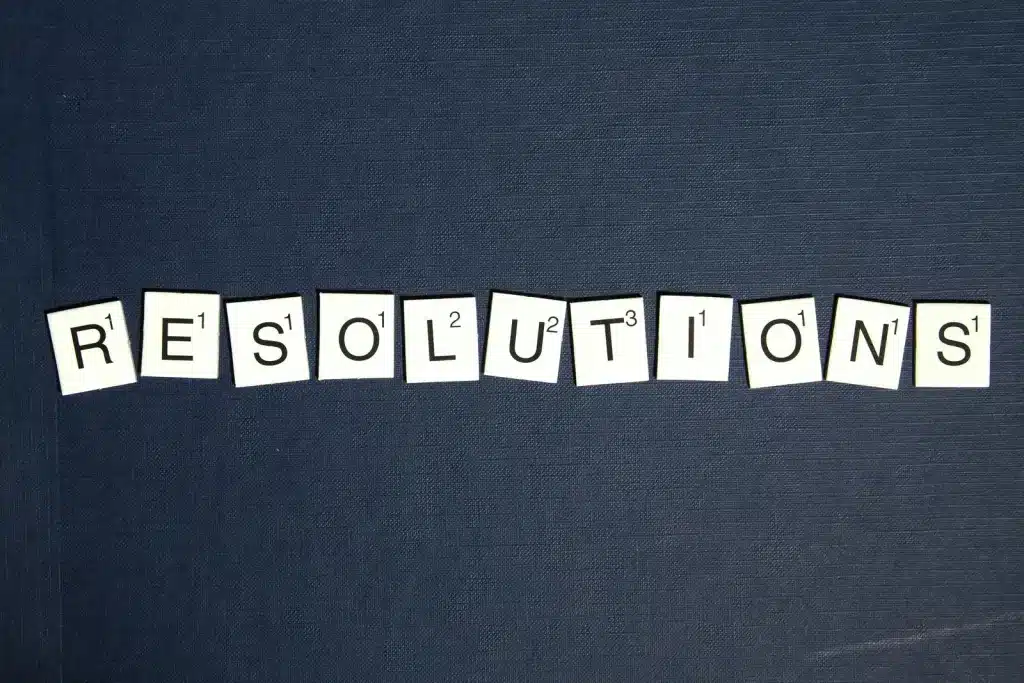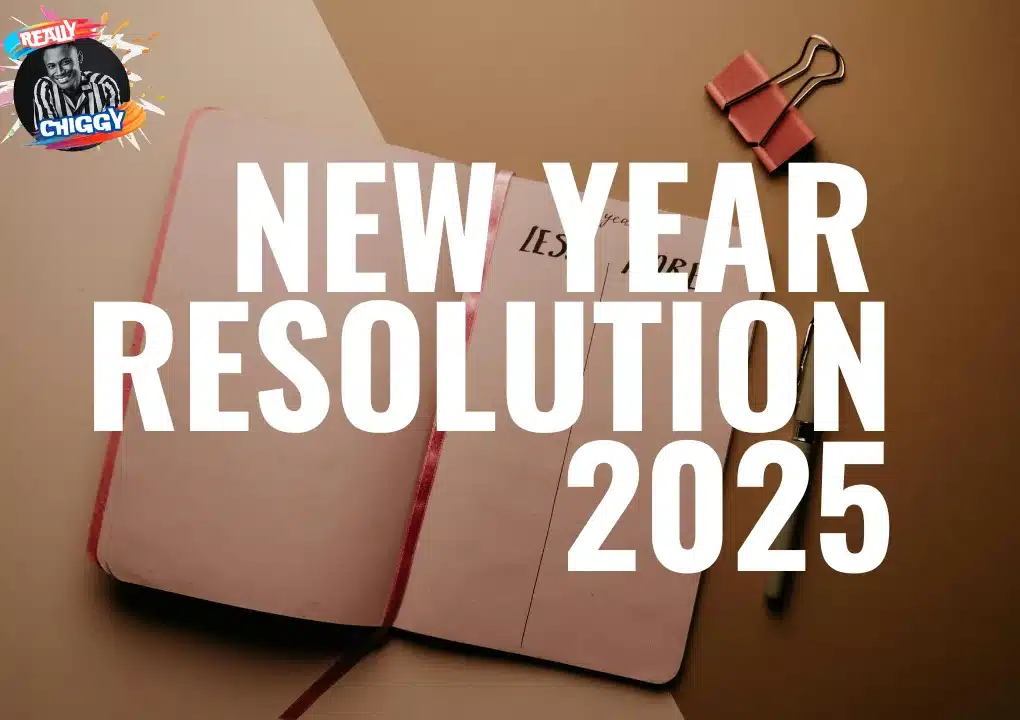5 Proven Strategies to Achieve Your New Year’s Resolutions in 2025
As we approach 2025, it’s an ideal time to reflect on the goals we wish to achieve in the coming year. Setting New Year’s resolutions is a common practice, but turning these aspirations into reality requires more than just intention. You cannot stop an addiction or a habit that has lasted for years by just making a simple confession at the beginning of the year and not putting in the effort required to achieve that.
ALSO, READ The Art of Saying “No” & Setting Boundaries For Yourself
New Year’s resolutions are a timeless tradition, yet so many of them fall flat by February. In 2025, it’s time to break the cycle. The key to achieving resolutions lies not just in setting goals but in implementing strategies that make success inevitable. Whether you’re aiming to get fit, boost your career, or improve your well-being, these five proven strategies will help you turn your New Year’s resolutions into meaningful, lasting achievements.
5 Proven Strategies to Achieve Your New Year’s Resolutions in 2025

- Set Clear, Measurable, and Actionable Goals
- Create an Environment That Supports Your Goals
- Start Now don’t wait till the 1st Of January
- Create New Distractions or Passion
- Record Your Progress
1. Set Clear, Measurable, and Actionable Goals
The first step to achieving any goal is to make it crystal clear. Vague resolutions like “I want to save money” or “I want to be healthier” often lack direction. Instead, you need goals that are specific, measurable, achievable, relevant, and time-bound (SMART).
Here’s how you can set SMART goals in 2025:
- Specific: Identify exactly what you want to achieve. For example, “Save $5,000 by December 31st” instead of “Save more money.”
- Measurable: Add metrics that let you track progress. For instance, “Work out 4 times a week for 45 minutes” gives you something tangible to measure.
- Achievable: Break big goals into smaller, realistic steps. If saving $5,000 feels too large, break it into monthly savings of $416.
- Relevant: Ensure your resolution aligns with your life priorities. Ask yourself, “Why is this important to me?”
- Time-bound: Attach deadlines. “Lose 10 pounds by March 30th” creates urgency and focus.
Pro Tip: Write your goals down and revisit them weekly. A Harvard study shows that written goals are 42% more likely to be achieved.
2. Create an Environment That Supports Your Goals
Your surroundings play a powerful role in shaping your habits and behaviours. If your environment doesn’t support your resolutions, you’re setting yourself up for failure. For instance, if you want to eat healthier but your pantry is stocked with chips and soda, achieving your goal becomes an uphill battle.
Here’s how to set up a supportive environment:
- Eliminate triggers: Remove temptations from your home, office, or digital life.
- Add positive cues: Place gym clothes by your bed for morning workouts or a water bottle on your desk to encourage hydration.
- Surround yourself with supportive people: Share your goals with friends or family who can hold you accountable. Join communities—online or offline—where people share similar aspirations.
- Use technology for good: Leverage apps that track progress, provide reminders or limit distractions (e.g., fitness apps, habit trackers, or focus timers).
Example: If your goal is to improve productivity, set up your workspace to reduce distractions. Use apps like Forest or Freedom to block social media during work hours.
3. Take Action Now—Start Small and Build Momentum
The biggest obstacle to achieving resolutions is waiting for the “perfect time” to start. Here’s the truth: there is no perfect time. Waiting for January 1st, a Monday, or the “right mood” only delays progress. Start today, no matter how small.
ALSO, READ How To Find Your Purpose Early In Life And Fulfil It
How to take action immediately: New Year’s Resolutions
- Break your resolution into small, manageable tasks. For instance, if your goal is to write a book, start with just 15 minutes of writing a day.
- Focus on consistency over perfection. Small, daily progress adds up over time. Atomic habits—like walking for 10 minutes daily or saving $2 a day—can transform into significant achievements.
- Celebrate micro-wins. Completing small tasks boosts confidence and motivation, making it easier to stay committed.
Key Insight: Research shows that starting now (even imperfectly) increases the chances of long-term success because you’re already building momentum.

4. Replace Old Habits with Positive Alternatives
Breaking bad habits is hard because they’re often deeply ingrained. The key is not just to eliminate these habits but to replace them with healthier, positive behaviours.
Steps to replace bad habits:
- Identify the trigger behind your habit. For example, do you scroll social media when you’re bored or stressed?
- Replace the bad habit with a positive alternative. Instead of scrolling, try reading a book, meditating, or journaling for 5 minutes.
- Use rewards to reinforce new behaviours. If you work out consistently for a week, treat yourself to something non-destructive, like a movie night or a healthy meal at a restaurant.
Example: If you’re trying to quit late-night snacking, drink herbal tea or snack on a healthier alternative like fruit. Over time, your brain will associate the trigger with the new habit.
Pro Tip: Focus on “adding” new habits rather than removing old ones entirely. Positive alternatives feel less restrictive and easier to adopt.
5. Track Your Progress and Celebrate Small Wins
You can’t improve what you don’t measure. Regularly tracking your progress keeps you motivated and helps you spot areas where adjustments are needed.
How to track your goals effectively:
- Use a journal, spreadsheet, or app to log daily or weekly progress. Apps like Habitify, Strides, or MyFitnessPal make tracking easy and visual.
- Set milestones and celebrate when you reach them. For example, if your goal is to run a 10k, celebrate when you hit 5k. Small rewards keep you motivated.
- Reflect on setbacks without judgment. If you miss a day or fall off track, focus on what you can do next—not what you did wrong. Growth happens through persistence, not perfection.
Motivation Tip: Regular reflection can help you appreciate your progress. Take time each month to ask yourself: What went well? What can I improve?

Conclusion: Make 2025 Your Year of Lasting Change
Achieving your New Year’s resolutions in 2025 isn’t about luck—it’s about strategy. By setting clear goals, creating a supportive environment, taking immediate action, replacing old habits, and tracking your progress, you set yourself up for success. Remember, small, consistent actions lead to remarkable results over time.
This year, choose progress over perfection. Commit to yourself and take the first step today. Your future self will thank you for the effort you put in now.
“Success is the sum of small efforts repeated day in and day out.” — Robert Collier
SUBSCRIBE TO OUR YOUTUBE CHANNEL FOR MORE
